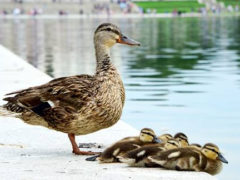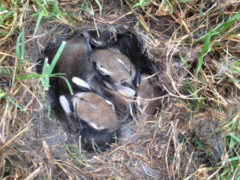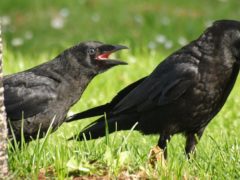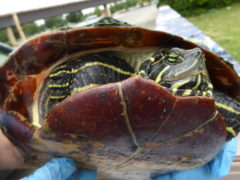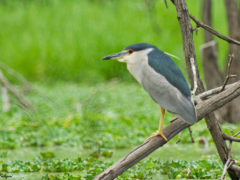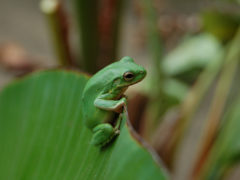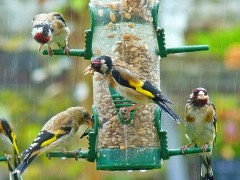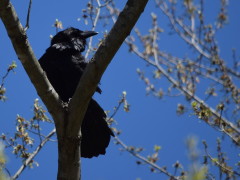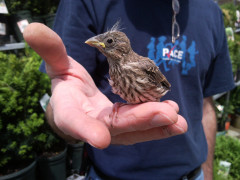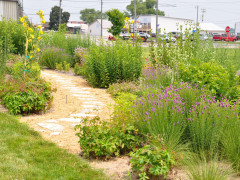Many people like to visit ducks at their local pond and feed them bread. As well-intentioned as this may be, it is not advisable. Feeding bread to ducks causes far more harm than good. Bread lacks nutrition and is very filling. Ducks will fill up on bread and not have room for the healthy and nutritious food that they need to [Read More …]
Wildlife Gardening Tips
You’re not the only one who calls your home “home”. Your yard or garden may be home to wild animals. Before you prepare your yard for spring, make sure you aren’t disrupting any of the wild residents. City Wildlife’s gardening tips: Before mowing your lawn, check your lawn for rabbits, turtles, frogs, and any other critters. Eastern [Read More …]
West Nile Virus: Transmission In Birds
August and September are the heart of West Nile Virus season; reported infections nearly triple in a matter of weeks. Yet many don’t realize that West Nile Virus is highly infectious in birds - more than in humans. Furthermore, birds play a much larger role in spreading the disease than people realize. West Nile Virus sounds scary, but it [Read More …]
Helping Local Turtles: Not A Hard Shell!
We have had some great success stories lately involving some of our favorite patients: Turtles! While birds and mammals comprise the majority of the animals that we care for at City Wildlife, we also take in reptiles and amphibians. Turtles are chief among these reptiles! The Department of Energy and Environment has observed 21 species of [Read More …]
Black-crowned Night Heron: Our Long-time Neighbors
On Monday July 18th, we admitted a nestling Black-crowned Night Heron (Nycticorax nycticorax). The bird was brought in by a National Zoo employee who also volunteers at City Wildlife, after the nestling fell from its nest into one of the crane enclosures at the National Zoo. The nestling is covered in down, but it has not fledged yet, meaning it [Read More …]
Thin Skinned: Frogs, Toads, and Other Amphibians
Did you know you can gauge the health of an ecosystem by tracking the number of amphibians? Here’s why: frogs, toads, and other amphibians have permeable skin. Consequently, they are extremely sensitive to toxins. If their skin comes in contact with pollutants they become very ill and, depending on the substance, may not survive. Their skin is so [Read More …]
It’s Raining! Where are the Birds?
Regardless of what kind of animal you are, stormy weather can be a real pain. It usually means there is little to be done other than finding a cozy space to hunker down to wait out the wet weather. Most animals have developed behavioral or biological adaptations to help them stay warm and dry during light rains but heavy rains are another matter [Read More …]
Return of the Ravens
A few weeks ago, DOEE Wildlife Biologist Dan Rauch discovered a nesting pair of Common Ravens in DC. This was a surprising discovery. Although other corvids, such as American Crows, Fish Crows, and Blue Jays reside in the DC area, Ravens have not been breeding in DC for over 100 years and historical records of them in our area are few and far [Read More …]
When Love Isn’t Enough
Inappropriate possession of wildlife is a growing problem. It often starts with good intentions. Someone sees an injured or orphaned animal and wants to render assistance. They give it food, water, and provide it with a safe place away from harsh weather and predators. Depending on the age and condition of the animal, they may even choose to keep [Read More …]
Plan to Plant Native: Build A Pollinator Garden
BUILDING a pollinator garden is one of the best ways to help support local wildlife (and humans!). Pollinators, such as bees and butterflies, are essential to a healthy ecosystem. Close to 75% of all flowering plants rely on pollinators for seed and fruit production. Those plants are responsible for providing much of the air we breath and the [Read More …]
